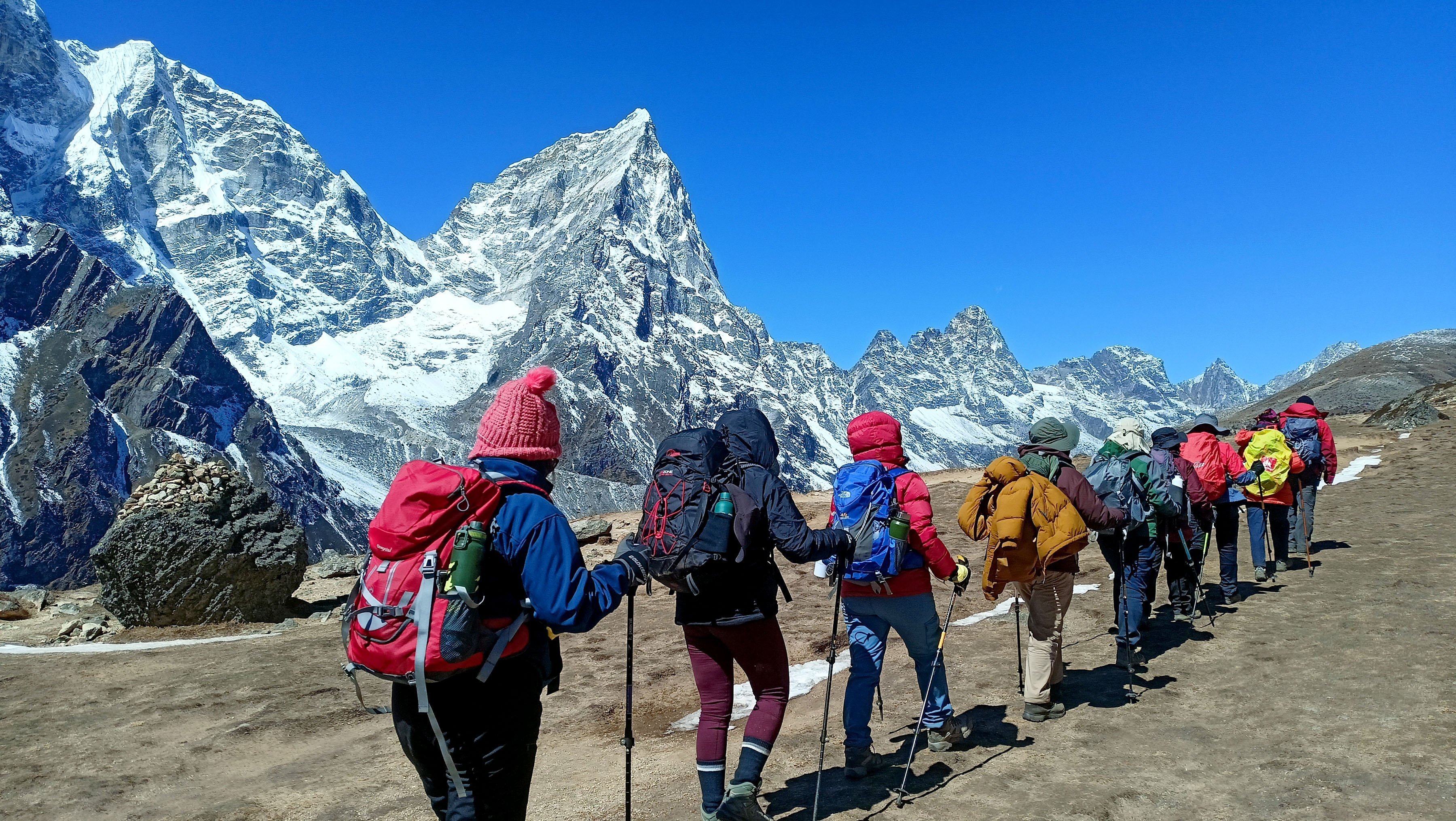Work than festival celebration counts first for porters carrying loads for tourists

Solukhumbu, October12 — The Dashain festival air is all around and people are in a festive mood. However, for Nabin Rai of Sotang, Solukhumbu it is time for work and he set out to the Khumbu region on the day of the Phulpati, the seventh day of the Bada Dashain festival, the biggest festival of Nepal.
The 24-year-old works as a porter for the trekkers and climbers and carries their bags and logistics. For him, work carries more significance than the festivities as he has to make ends meet. That is why he was heading towards Khumbu, the gateway to the Everest, in the hope of getting work when other people were homebound to celebrate the Dashain festival.
"For people like me, Dashain and Tihar festivals do not matter much. It is always like this. It is the prime tourist season in Khumbu. Friends have brought a team of foreign trekkers and I am going to join them to carry their loads," Rai said taking a long breath.
He said that he is bound to work to make ends meet and provide for the family. He is the sole breadwinner for his family comprising of his old parents and a brother and sister who are still young. "How will my family survive if I stay home and not go out for work? I will be celebrating Dashain in Khumbu, carrying tourists' luggage."
Many youths in the lower region of Solukhumbu district have reached Khumbu at present in search of portering work. Even students who are mostly busy in their studies at other time of the year have arrived in Lukla to carry loads for the tourists, 'utilizing' the Dashain festival holidays.
The porters who carry the tourists' bags and luggage earn up to Rs 2,000 per day, said Amrit Magar, a tourism entrepreneur based in Lukla.
Ramesh BK of Mapya Dudhkoshi, who studies in a college based in Salleri, has also reached Namche, during the Dashain holiday, in search of portering work. He said he has come to Khumbu to carry loads of the back-packers and mountaineers to make most out of the festival holidays, as he will have to attend college at other times.
"This is the opportune time for us to earn money to support our study expenses. I have been making some money to make up for my study expenses," BK shared.
When people in other districts are returning home hordes to celebrate Dashain, here in Khumbu region, one can see a large number of porters carrying loads for the tourists. This scenario gives an impression that Dashain has not arrived in Khumbu.
"Dashain does not count for us. We cannot eke out a living if we do not work at this time of the tourist season. I have been coming here in Khumbu for portering work every year as the tourist arrival is up here at this time, said Pradip Magar of Gorakhani, as he is walking up a trail, carrying a heavy load on his back.
It has been five years since he has not celebrated Dashain festival with his family.
The 'tourist season' has commenced in Solukhumbu, which is considered one of the main tourism destinations of the world. This is the time of the year in which tourists in high numbers arrive here for trekking and mountaineering purposes.
Following the saying 'make hay when the sun shines', the local tourism entrepreneurs are also accompanying the foreign visitors on trekking and mountaineering expeditions, forsaking festivities like Dashain and Tihar.
Up to 300 foreign tourists enter daily in Khumbu these days, according to the data shared by the Khumbu Pasang Lhamu rural municipality.
Amrit Magar of Lukla said that because the tourist arrivals peaks in this season the youths working in the tourism business are more enthused by the tourist arrivals than the arrival of festivals- the more the number of tourists, more the prospects of making income.
"There is no denying that big festivals like Dashain and Tihar that come once in a year are special for everyone, but one cannot support the family just by enjoying and celebrating the festivals, staying at home," he said.
Most of the youths who are into tourism business have arrived in Khumbu at this time. After all, business means business as it is their main source of income and they will have to make do with whatever money they earn during the main tourist season for they will have little work during the lean season in the rest of the year.
There are two 'peak' tourist seasons in Khumbu in a year. The first peak season is from mid-February to mid-May and mid-September to October, and the second one is from mid-November to mid-December.
Therefore, Khumbu region is teeming with domestic and foreign tourists at this time, engendering hopes among the local tourism entrepreneurs.


Leave Comment